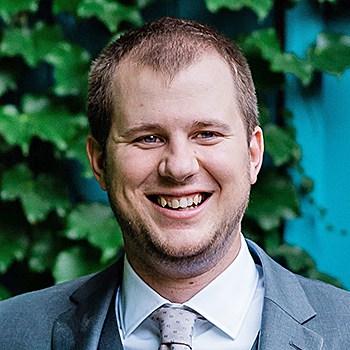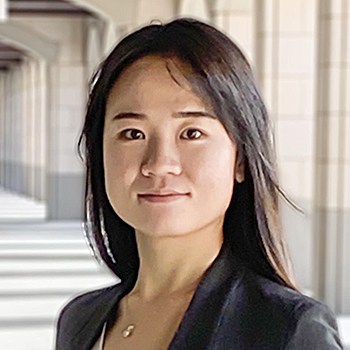
Welcome to our new ChE Faculty
The department will welcome two new assistant professors this year, Andrew Allman and Xiwen Gong; Allman will join the faculty in September 2020 and Gong in January 2021.

The department will welcome two new assistant professors this year, Andrew Allman and Xiwen Gong; Allman will join the faculty in September 2020 and Gong in January 2021.

We welcome Andrew Allman to the department this fall as an assistant professor. Andrew comes to Michigan by way of Minnesota, where he was a postdoctoral associate under Qi Zhang and received his Ph.D. working with ChE alumnus Prodromos Daoutidis (PhD `91). Andrew hails from York, Pennsylvania and received his BS in chemical engineering from Penn State University.
“We are thrilled to have Andrew join us at the University of Michigan,” Sharon Glotzer, Anthony C. Lembke Department Chair of Chemical Engineering. “His computational and data-driven research in process systems engineering will bring breakthroughs in sustainable engineering, plant-wide control, supply chain management, game theory and systems biology. Andrew is also bringing his expertise to the classroom, where he is teaching our undergraduates Process Dynamics and Control.”
Andrew’s research lies in the field of process systems engineering and considers optimal decision making for the design, operation, and control of chemical, energy, and biochemical systems. A main focus of the research team is to develop new theory and methods to exploit structure inherent in these systems to more efficiently solve traditional model-based decision-making problems, as well as intelligently collect data that is most relevant for making decisions. Applications of this research are wide-ranging, and include sustainable energy, next-generation manufacturing, supply chain management, and systems biology.
“I am very excited to bring process systems engineering research back to the department after a long hiatus and join a collaborative and growing team of faculty,” says Andrew. He also looks forward to teaching students fundamental tools that they can use to address major global challenges.
Outside of chemical engineering, Andrew is very competitive and enjoys playing board games and softball. He is an avid sports fan and enjoys watching Philadelphia Phillies and New York Giants games. He is looking forward to embracing a friendly rivalry within the Big 10 between Michigan and his two alma maters, Penn State and Minnesota.

Growing up in a small industrial city in eastern China reliant on fossil fuels led Xiwen Gong toward a career where she could find novel solutions for sustainable development. Her passion for clean and renewable energy technology drew her to Edward Sargent’s lab at the University of Toronto — a leading group in engineering solar cells using inexpensive nanomaterials— to pursue her doctoral studies. As a PhD student, she focused on designing heteroepitaxial structures between nanomaterials and perovskites. She further deployed this hybrid material in electronics for solar energy harvesting, light emitting, and optical sensing.
After graduation in 2018, Xiwen worked as a Schmidt Science Fellow with Zhenan Bao at the Department of Chemical Engineering, Stanford University. At Stanford, Xiwen focused on developing soft and stretchable semiconductors and light emitting devices for wearable display.
At the University of Michigan, the Gong research group will develop bio-integrated materials and electronics. They will focus on material innovation, advanced spectroscopy, and device engineering. Ultimately, the Gong research group aims to address challenges in aging and health care by advancing wearable technology, soft robotics, and beyond.
Sharon Glotzer looks forward to Gong’s arrival next term. “We are beyond excited to welcome Xiwen to the U-M Chemical Engineering Department. Her research takes on the grand challenge of aging and healthcare through the development of bio-integrated electronics – one of the most anticipated medical Internet of Things (IoT) technologies — and by leveraging advanced spectroscopy and deep learning. Xiwen will be teaching Chemical and Engineering Thermodynamics this winter.””
Xiwen is a sports enthusiast; she likes tennis, swimming, ski, and hiking. She is also interested in learning new languages (currently focusing on French and Python!). “I cannot wait to begin working with the amazing students and colleagues in the Department of Chemical Engineering this coming winter,” Xiwen says. “I am also looking forward to engaging with the wider engineering community at the University of Michigan.”